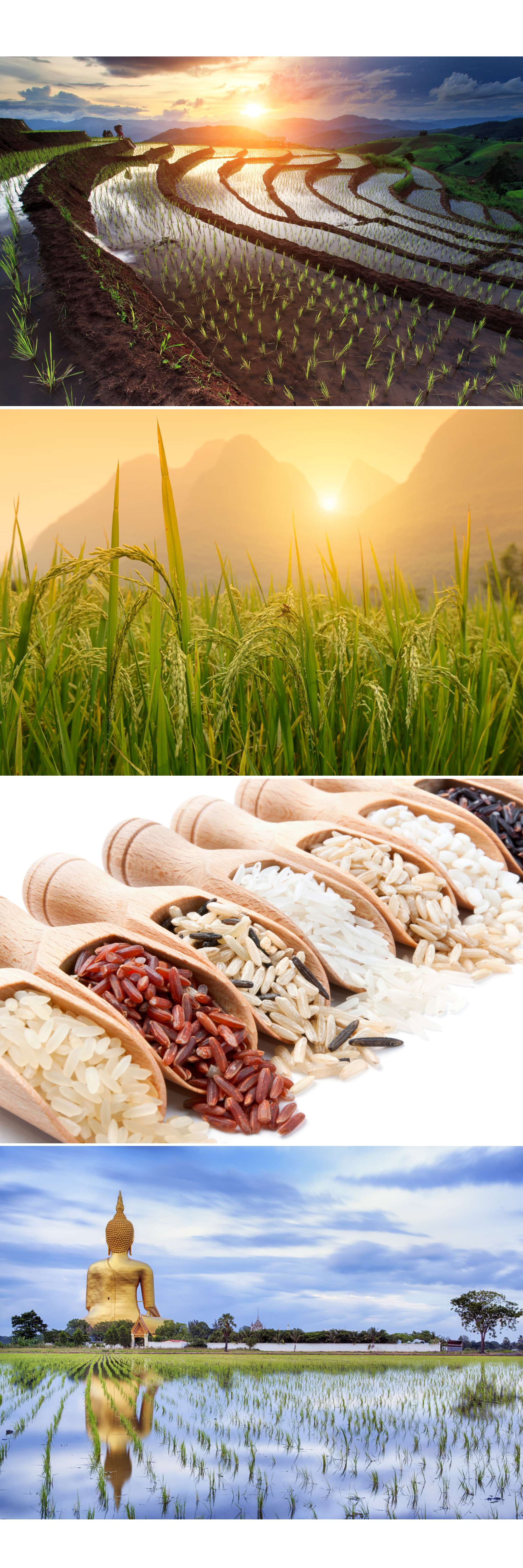4 FREQUENTLY ASKED QUESTIONS ABOUT RICE

It is with rice as with people. No two are the same. Well, that's a bit of an exaggeration of course, but there are more than 40 thousand different types of rice. They differ in thickness, taste, smell, colour, grain length, the way they grow and where they grow. And then it also matters how they are presented to you. As brown or white rice, for example.
WHEN DOES BROWN RICE BECOME WHITE RICE?
This is how it works. When the rice is harvested, the farmers remove the rice grains from the plants (this is called threshing). The inedible husk is removed. This gives us brown rice. If the fibre-rich membrane (bran) around the rice is also removed, you get white rice.
Brown rice is healthy because it is a wholemeal product, but there is nothing wrong with regular white rice. It contains carbohydrates, but hardly any fats, sugars or salt. And they contain many good minerals (potassium and phosphorus), vitamins (B) and also a reasonable amount of proteins.
WHAT IS THE DIFFERENCE BETWEEN JASMINE RICE AND PANDAN RICE?
In Thailand (and surrounding countries) mainly jasmine rice is grown. That is not so strange, as jasmine rice is originally from Thailand. The rice has a long grain, a nice white colour and a bit of a sweet smell. It is called white jasmine rice in Thailand because the white colour reminds one of the flower.
Jasmine rice is also called pandan rice in some countries. Pandan is a palm with leaves that have a nutty smell. This smell can be found in jasmine rice, which is why jasmine rice is sometimes called pandan rice. But actually there is no such thing as pandan rice.
Cooking jasmine rice is very easy. First rinse the rice with cold water until the water is no longer turbid. Bring a pan with the rice plus one and a half times as much water to the boil. When the rice is boiling put the heat on low. After 10 minutes check whether the rice is done. If so, let the rice steam a little more with the lid on the pan. The better you balance the amount of rice and water, the drier your grain will be.
WHAT IS BASMATI RICE?
Basmati rice comes mainly from the valleys of the Himalayas. The rice has a soft grassy aroma (vasmati means fragrant in Sanskrit). The aroma is different from that of jasmine rice and the taste is more intense. The grains of the basmati are longer and drier. Dryer because basmati rice is first ripened for a while, it gives the grain more fragrance and a slightly darker colour.
Basmati rice is cooked in almost the same way as jasmine rice. The only difference is that you take the pan off the heat after 8 minutes and let it steam for another 15 minutes with the lid on.
AND WHAT IS STICKY RICE?
Sticky rice (usually with a round grain) naturally has a good portion of starch. They absorb less water than other types of rice. This results in the rice sticking together well after cooking. The well- known sticky rice is used for Japanese sushi. In Europe, we grow relatively much sticky rice. Good examples are Spanish paella and Italian risotto.
Cooking sticky rice requires more work. The rice must first be soaked in plenty of water for at least 3 hours (so that the rice is well below the water surface). Then the rice is steamed, for example with a steamer. The rice then slowly swells and becomes nice and soft. During cooking, the amount of water must be carefully monitored. There must be enough to continue steaming. After steaming, the rice must cool down gently, so that it does not become too sticky. You can also boil the rice, but do so with much less water than with dry rice.



